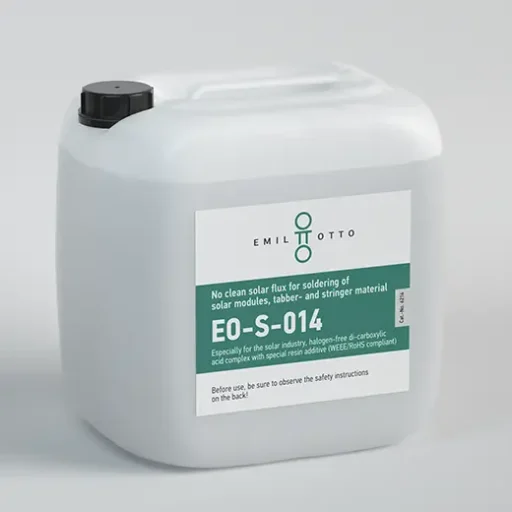No Clean-Flux especially for the solar industry
Di-carboxylic acid complex, halide-free, resin additive (WEEE/RoHS compliant)
Type ISO-9454: 2231 (2.2.3.A) // DIN-EN 61190-1-1 (acc. J-STD-004B) (IEC ORL0)

| Appearance/smell: | colourless, light yellowish, transparent liquid |
| Solids content: | 2.1 wt.-% |
| Density at 20 °C: | 0.793 (+/- 0.003) g/ml |
| Acid number: | 13 – 16 mg KOH/g |
| Activators: | di-carboxylic acid complex, halide-free, with special resin additive |
| Solvents: | short-chain alcohols |
| Flash point: | 12 °C |
| Available as a quick-drying version: | Yes |
EO-S-014 is a halide-free No Clean-Flux that has been specially developed for the requirements of the solar industry. It is ideal for soldering solar modules, tabber and stringer material as well as for connecting cells without leaving sticky residues.
The activators are specially designed for the production of solar modules. The solids content is 2.1%.
Recommendation from practice:
In general, flux should be applied in a minimal quantity.